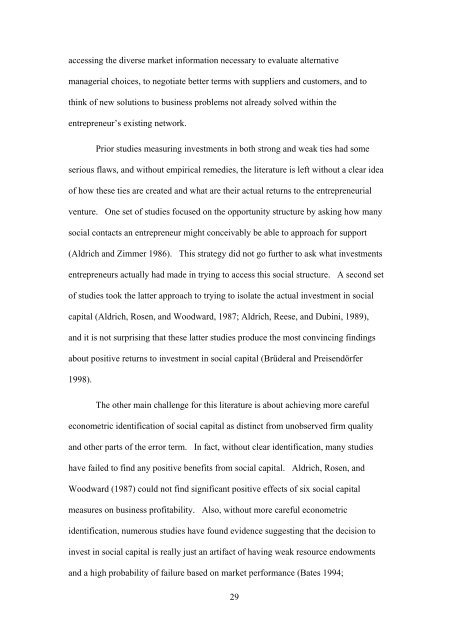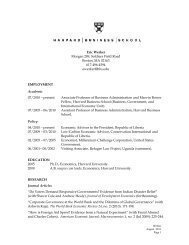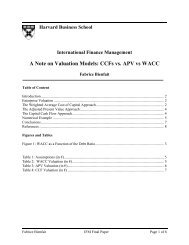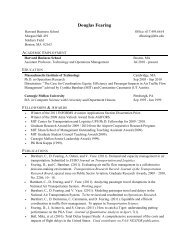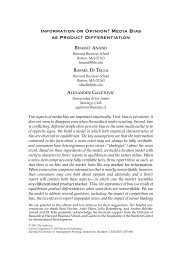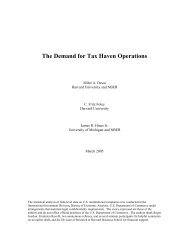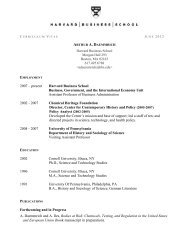Social Dimensions of Entrepreneurship. - People. hbs .edu ...
Social Dimensions of Entrepreneurship. - People. hbs .edu ...
Social Dimensions of Entrepreneurship. - People. hbs .edu ...
You also want an ePaper? Increase the reach of your titles
YUMPU automatically turns print PDFs into web optimized ePapers that Google loves.
accessing the diverse market information necessary to evaluate alternative<br />
managerial choices, to negotiate better terms with suppliers and customers, and to<br />
think <strong>of</strong> new solutions to business problems not already solved within the<br />
entrepreneur’s existing network.<br />
Prior studies measuring investments in both strong and weak ties had some<br />
serious flaws, and without empirical remedies, the literature is left without a clear idea<br />
<strong>of</strong> how these ties are created and what are their actual returns to the entrepreneurial<br />
venture. One set <strong>of</strong> studies focused on the opportunity structure by asking how many<br />
social contacts an entrepreneur might conceivably be able to approach for support<br />
(Aldrich and Zimmer 1986). This strategy did not go further to ask what investments<br />
entrepreneurs actually had made in trying to access this social structure. A second set<br />
<strong>of</strong> studies took the latter approach to trying to isolate the actual investment in social<br />
capital (Aldrich, Rosen, and Woodward, 1987; Aldrich, Reese, and Dubini, 1989),<br />
and it is not surprising that these latter studies produce the most convincing findings<br />
about positive returns to investment in social capital (Brüderal and Preisendörfer<br />
1998).<br />
The other main challenge for this literature is about achieving more careful<br />
econometric identification <strong>of</strong> social capital as distinct from unobserved firm quality<br />
and other parts <strong>of</strong> the error term. In fact, without clear identification, many studies<br />
have failed to find any positive benefits from social capital. Aldrich, Rosen, and<br />
Woodward (1987) could not find significant positive effects <strong>of</strong> six social capital<br />
measures on business pr<strong>of</strong>itability. Also, without more careful econometric<br />
identification, numerous studies have found evidence suggesting that the decision to<br />
invest in social capital is really just an artifact <strong>of</strong> having weak resource endowments<br />
and a high probability <strong>of</strong> failure based on market performance (Bates 1994;<br />
29


